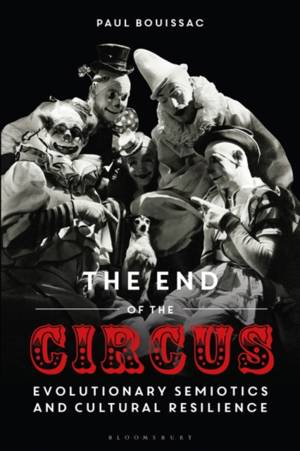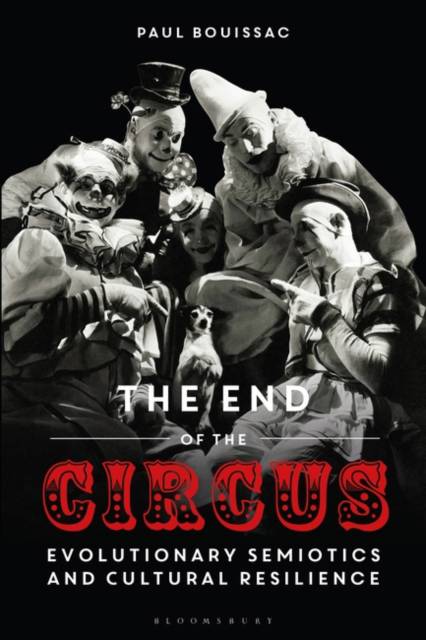
- Afhalen na 1 uur in een winkel met voorraad
- Gratis thuislevering in België vanaf € 30
- Ruim aanbod met 7 miljoen producten
- Afhalen na 1 uur in een winkel met voorraad
- Gratis thuislevering in België vanaf € 30
- Ruim aanbod met 7 miljoen producten
Zoeken
The End of the Circus
Evolutionary Semiotics and Cultural Resilience
Paul Bouissac
Paperback | Engels
€ 67,95
+ 135 punten
Omschrijving
This book analyses two features of the traditional circus that have come under increasing attack since the mid-20th century: the use of wild animals in performance and the act of clowning. Positioning this socio-cultural change within the broader perspective of evolutionary semiotics, renowned circus expert Paul Bouissac examines the decline of the traditional circus and its transformation into a purely acrobatic spectacle.
The End of the Circus draws on Bouissac's extensive ethnographic research, including previously unpublished material on the training of wild animals and clown make-up, to chart the origins of the circus in Gypsy culture and the drastic change in contemporary Western attitudes on ethical grounds. It scrutinizes the emergence of the new form of circus, with its focus on acrobatics and the meaning of the body, showing how acrobatic techniques have been appropriated from traditional Gypsy heritage and brought into the fold of mainstream popular entertainment. Questioning the survival of the new circus and the likely resurgence of its traditional forms, this book showcases Bouissac's innovative approach to semiotics and marks the culmination of his ground-breaking work on the circus.Specificaties
Betrokkenen
- Auteur(s):
- Uitgeverij:
Inhoud
- Aantal bladzijden:
- 264
- Taal:
- Engels
Eigenschappen
- Productcode (EAN):
- 9781350244764
- Verschijningsdatum:
- 23/03/2023
- Uitvoering:
- Paperback
- Formaat:
- Trade paperback (VS)
- Afmetingen:
- 156 mm x 234 mm
- Gewicht:
- 371 g

Alleen bij Standaard Boekhandel
+ 135 punten op je klantenkaart van Standaard Boekhandel
Beoordelingen
We publiceren alleen reviews die voldoen aan de voorwaarden voor reviews. Bekijk onze voorwaarden voor reviews.











